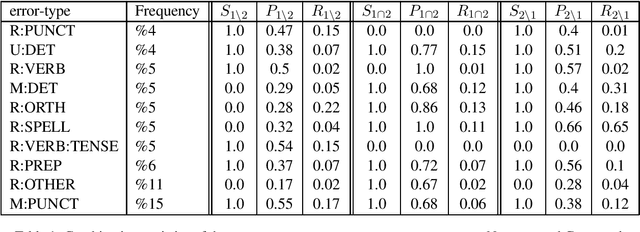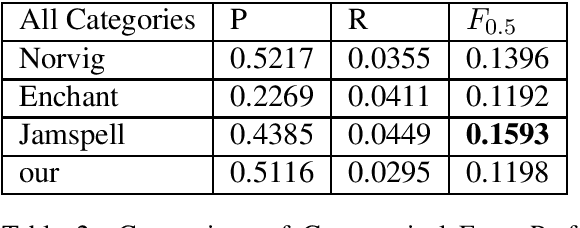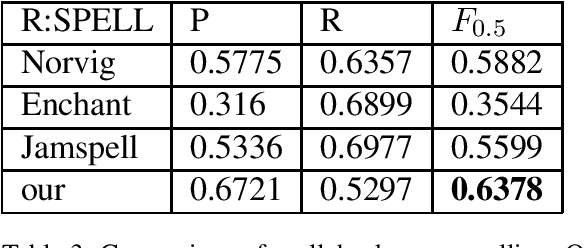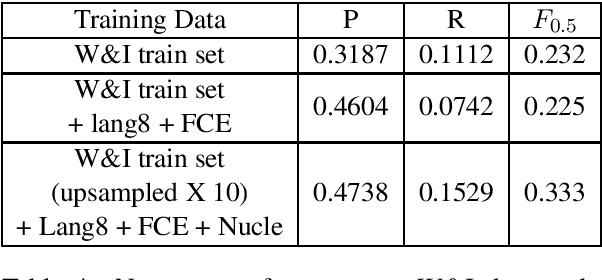Naftali Liberman
Label Sleuth: From Unlabeled Text to a Classifier in a Few Hours
Aug 02, 2022



Abstract:Text classification can be useful in many real-world scenarios, saving a lot of time for end users. However, building a custom classifier typically requires coding skills and ML knowledge, which poses a significant barrier for many potential users. To lift this barrier, we introduce Label Sleuth, a free open source system for labeling and creating text classifiers. This system is unique for (a) being a no-code system, making NLP accessible to non-experts, (b) guiding users through the entire labeling process until they obtain a custom classifier, making the process efficient -- from cold start to classifier in a few hours, and (c) being open for configuration and extension by developers. By open sourcing Label Sleuth we hope to build a community of users and developers that will broaden the utilization of NLP models.
Learning to combine Grammatical Error Corrections
Jun 10, 2019



Abstract:The field of Grammatical Error Correction (GEC) has produced various systems to deal with focused phenomena or general text editing. We propose an automatic way to combine black-box systems. Our method automatically detects the strength of a system or the combination of several systems per error type, improving precision and recall while optimizing $F$ score directly. We show consistent improvement over the best standalone system in all the configurations tested. This approach also outperforms average ensembling of different RNN models with random initializations. In addition, we analyze the use of BERT for GEC - reporting promising results on this end. We also present a spellchecker created for this task which outperforms standard spellcheckers tested on the task of spellchecking. This paper describes a system submission to Building Educational Applications 2019 Shared Task: Grammatical Error Correction. Combining the output of top BEA 2019 shared task systems using our approach, currently holds the highest reported score in the open phase of the BEA 2019 shared task, improving F0.5 by 3.7 points over the best result reported.
 Add to Chrome
Add to Chrome Add to Firefox
Add to Firefox Add to Edge
Add to Edge